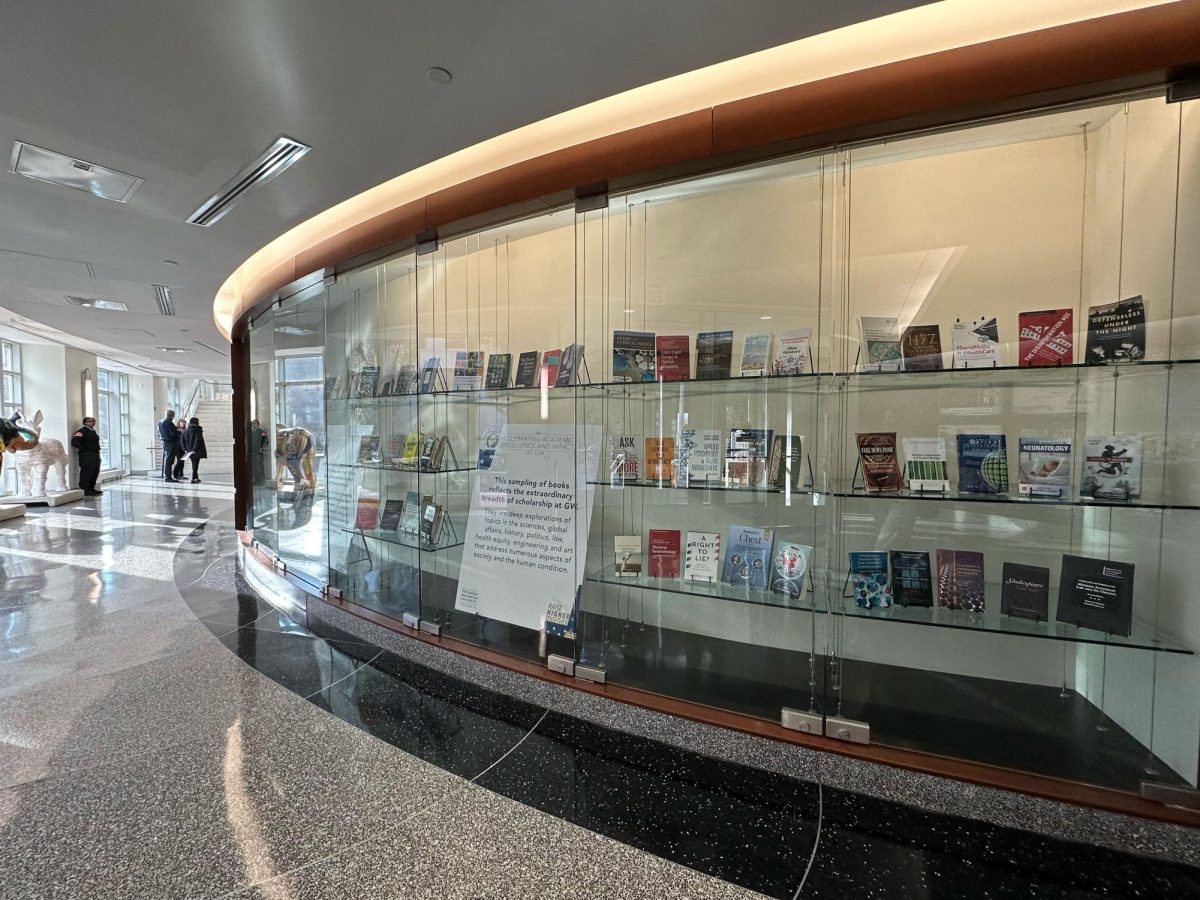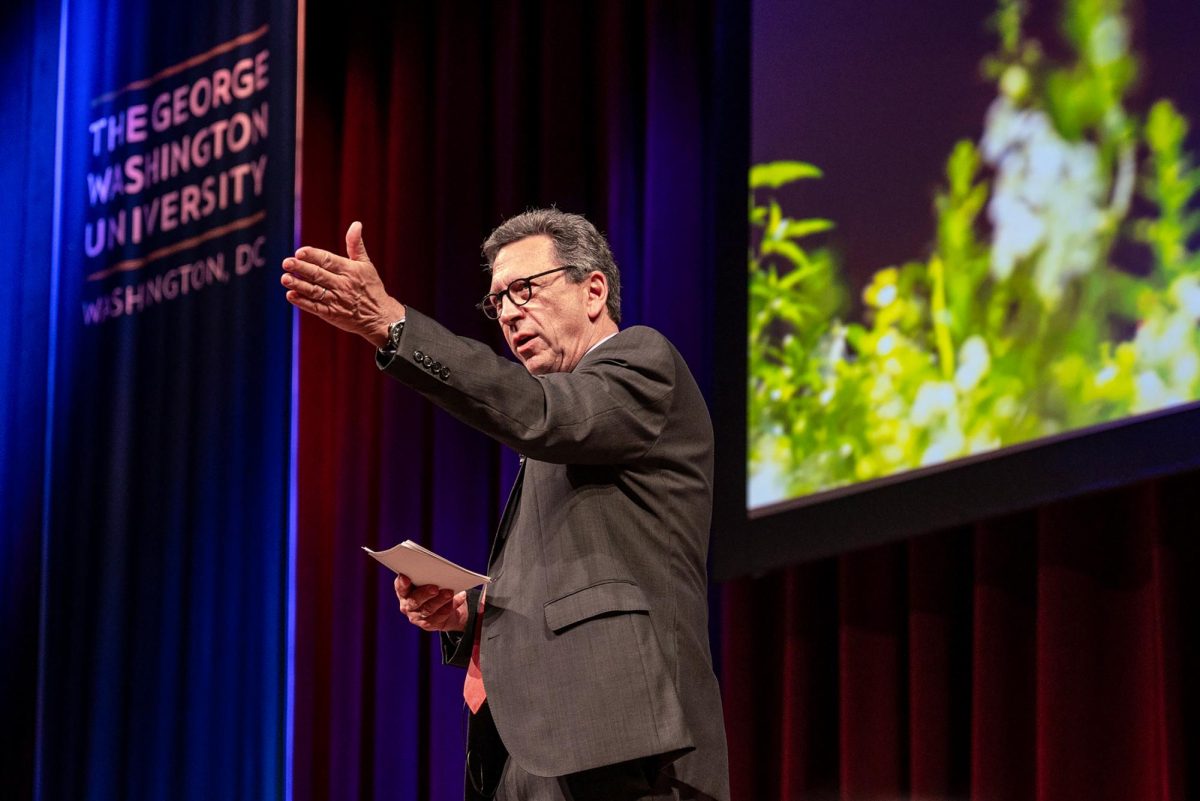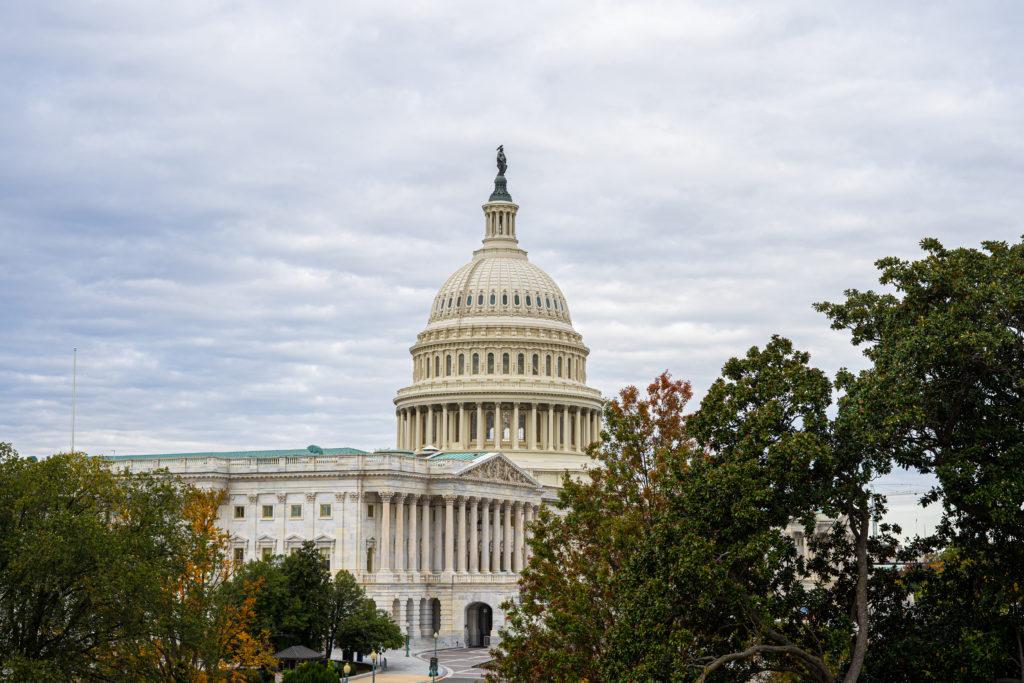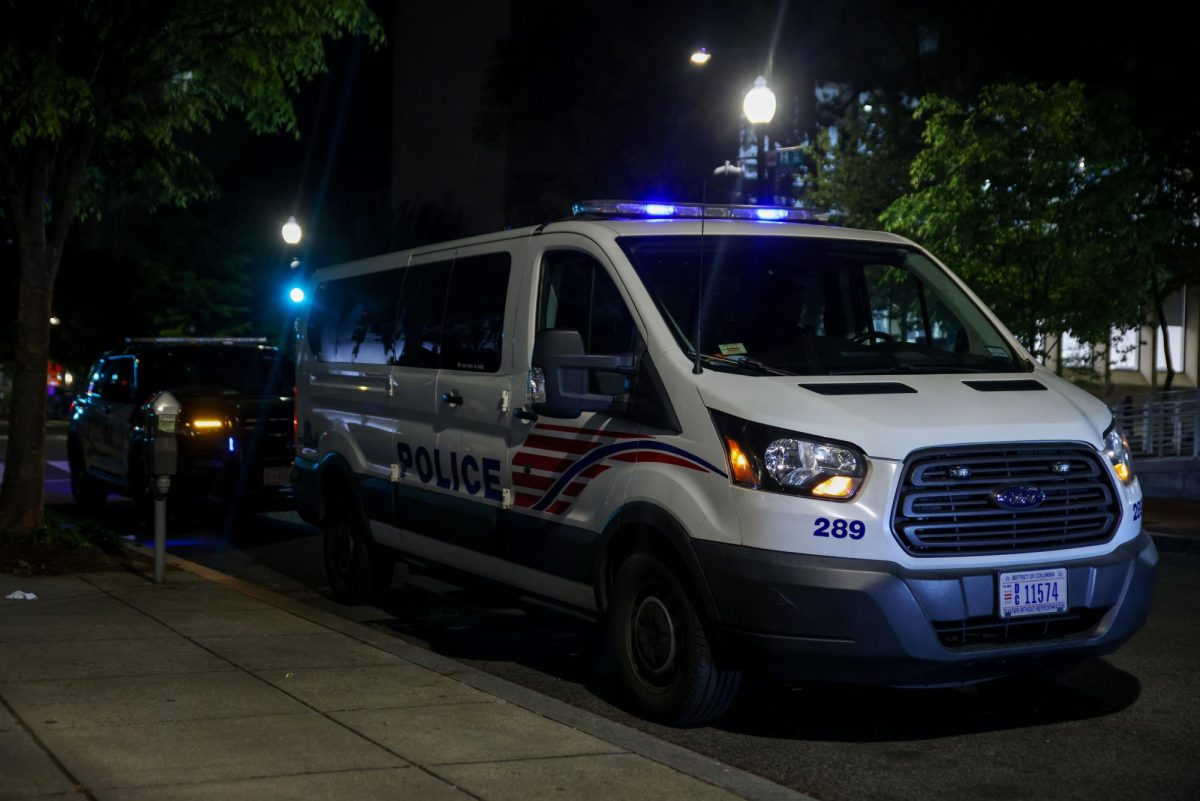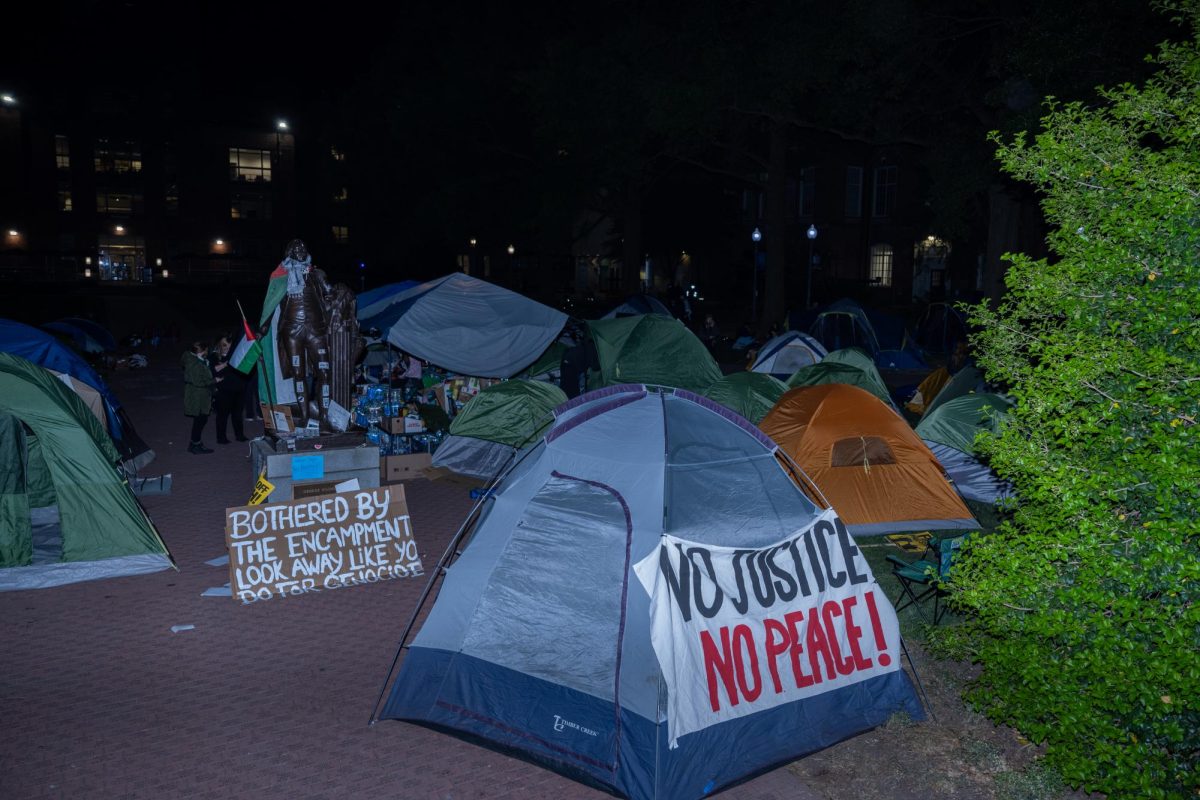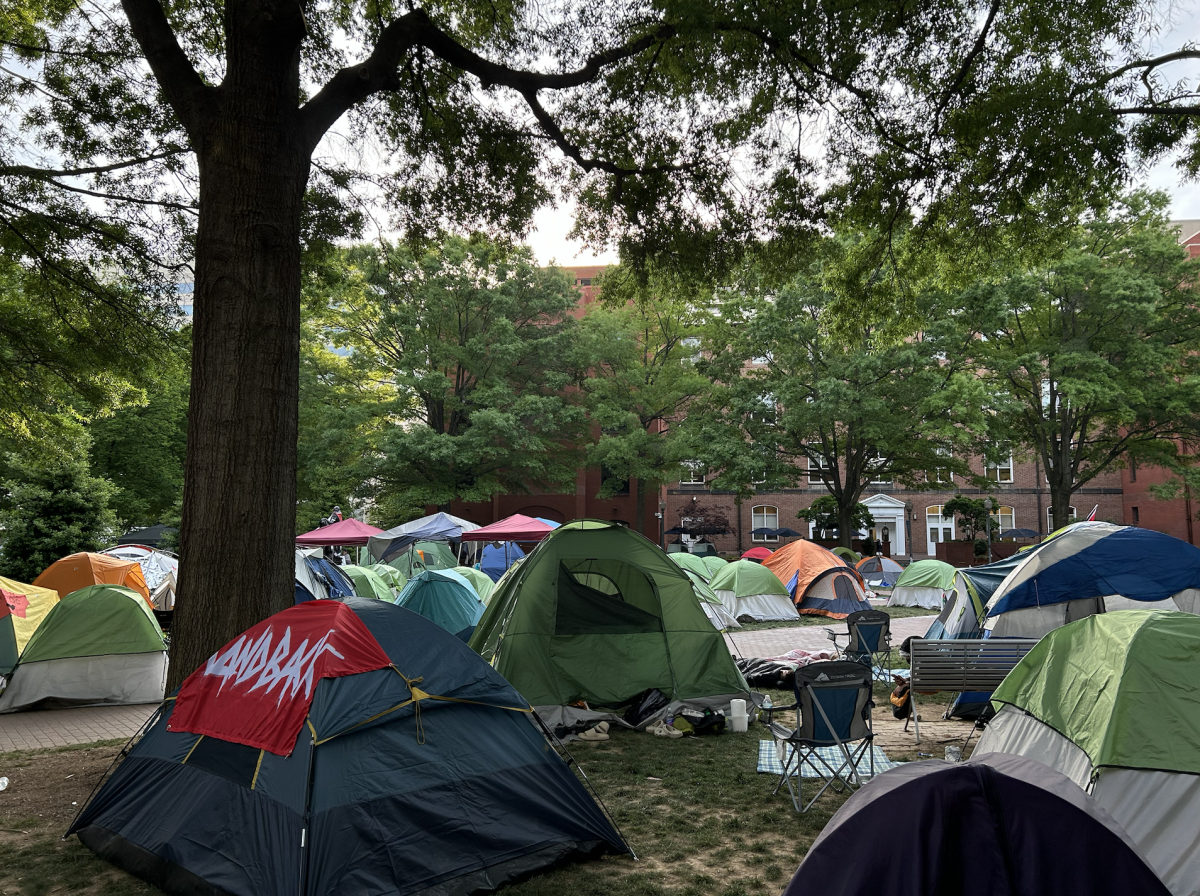Officials and faculty gathered in Jack Morton Auditorium Thursday for an academic symposium discussing research, interdisciplinary collaboration and the advantages of GW’s proximity to D.C. institutions and resources.
The symposium was the first event hosted as part of University President Ellen Granberg’s inauguration celebration, which officials announced would be made virtual Wednesday with restricted in-person access due to “heightened” safety concerns following the escalating Israel-Hamas war and D.C. protests scheduled for the weekend. In her opening remarks, Granberg said she wanted to host the event as part of her inauguration to honor faculty and academic research at GW.
Granberg said while the University has accomplished designations like being acknowledged as an R1 university — a title the Carnegie Classification of Institution of Higher Education designated to universities in the country with high levels of research — and becoming a member in July of the Association of American Universities, an invite-only prestigious organization of 71 “premiere” research universities, there is “potential” for more academic research and scholarship.
“I want to remove barriers to collaboration, provide the resources and infrastructure needed for breakthroughs and advance the impact of scholarship at GW for years to come,” Granberg said.
Provost Chris Bracey introduced the symposium’s faculty panelists, Chet Sherwood, Mary Ellsberg, Alexa Alice Joubin and Ekundayo Shittu and Vice Provost for Research Pamela Norris narrated the event, asking panelists questions about interdisciplinary research, risk-taking, community engagement and how they use GW’s proximity to D.C. resources.
Sherwood, a professor of anthropology and the director of the National Chimpanzee Brain Resource, said GW’s location in D.C. benefits graduate and undergraduate students by providing access to a diversity of resources and opportunities. Sherwood said alongside what students learn in the classroom, they can engage with institutions like the Smithsonian National Museum of Natural History and with policy and educational outreach that helps students discover new paths and careers.
“That’s the kind of thing that happens here that I wouldn’t imagine really happening elsewhere,” Sherwood said.
Joubin, a professor of English, theatre, international affairs and East Asian languages and cultures, said being close to institutions like the Smithsonian Institution, Fulcher Library and the Capitol gives students the opportunity to learn the significance of advocating for humanities and storytelling.
“I had in my various capacities various collaborations with this institution, brought my students there, not to mention taking advantage of a theatrical enterprise,” Joubin said.
When asked how GW serves as a “convener” of communities, Ellsberg, a professor of public health and the founding director of the Global Women’s Institute, said she provided input to the White House commission on gender equality. Ellsberg said she was also able to bring 33 Nicaraguan women who the government imprisoned for their political beliefs and activism to the Global Women’s Institute’s 10th anniversary celebration to “uplift” their story.
“It made a big difference to see that these women, who had been completely silenced and nobody knew about them for years, were here in Washington, D.C. being honored and it got an incredible amount of publicity and it was so meaningful to those women, to their families and to the entire human rights movement,” Ellsberg said.
When asked about the impact of research at GW, Shittu, an associate professor of engineering management and systems engineering, referenced his work through the University on a project funded by the Logistics Management Institute that addressed vaccine supply chain issues in developing countries. He said he adjusted the vaccine distribution process in Africa to lessen the number of vaccines that expire before people can take them, which “dramatically” improved vaccination rates.
“It’s about addressing these issues, putting smiles on people’s faces and knowing that we actually advanced the arising, the frontiers of knowledge,” Shittu said.
Shittu also discussed his experience working with engineering and public policy faculty on a funding proposal from the National Science Foundation to engage students on projects to build infrastructure to help the unhoused population. He said this experience helped students studying areas like computer science, mechanical and aerospace engineering and systems engineering explore different ways to use their degrees.
“We came up with the idea of social innovation for engineering students, and NSF loved it,” Shittu said.
When asked how the University facilitates interdisciplinary research and where it could improve its encouragement of interdisciplinary research, Sherwood said infrastructure like the Science and Engineering Hall that house faculty from across disciplines encourage interactions across those disciplines. Sherwood said adding more structured events like academic symposia can also facilitate cross-disciplinary connections.
“People can speak in an accessible way with no pressure, and I think that can build really important innovative, interdisciplinary collaborations,” Sherwood said. “I’d love to see even more opportunities for that.”
Sherwood added that he would like to see more opportunities for informal interdisciplinary interactions and for faculty to socialize together in an unstructured setting because those are also ways of building collaborative relationships. Sherwood said he would also like to see fewer barriers to team teaching, where a group of instructors teach a class, at GW, which he also believes can promote more interdisciplinary efforts.
“I know that there are some barriers to that, which I would love to see those fall away so that more team teaching can occur,” Sherwood said.


